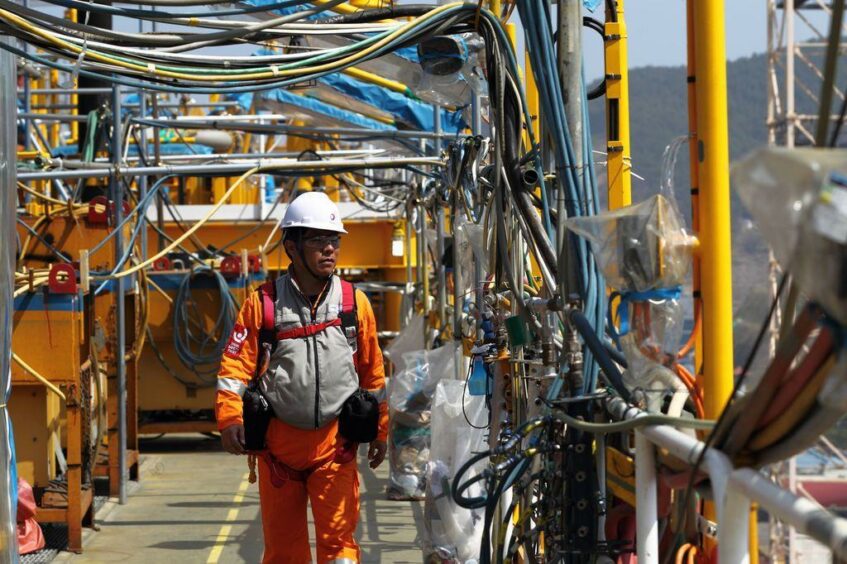 © Supplied by TotalEnergies
© Supplied by TotalEnergies TotalEnergies has taken a final investment decision (FID) on Begonia, a field in Angola’s Block 17/06.
Begonia covers five wells, which it will tie back to the Pazflor FPSO on the block. The field should start up in late 2024, adding 30,000 barrels per day of oil to the FPSO.
Total said the project carried a price tag of $850 million. It will involve 1.3 million man hours of work, of which 70% will take place in Angola.
The company said this was the second project in Angola, after CLOV Phase 3, to have a standardised subsea production system. This cuts costs by 20%, it said, and reduces lead times for equipment delivery.
The company also confirmed its plans for the Quiluma and Maboquiero fields in Angola, announced by Agência Nacional de Petróleo, Gás e Biocombustíveis (ANPG) and Eni yesterday.
Furthermore, the French company will go ahead with a solar photovoltaic (PV) plant at Quilemba. The company will work with the Ministry of Energy and Water, Sonangol and Greentech.
Quilemba will have initial capacity of 35 MWp, with the option of adding another 45 MWp in a second phase.
Multi energy
The three projects “illustrate the deployment of our multi-energy strategy in Angola, where TotalEnergies has been active for nearly 70 years,” said Patrick Pouyanné, chairman and CEO of Total.
“With Begonia, the first subsea tieback to another block, we are leveraging the existing Pazflor infrastructure, reducing costs, thanks largely to the standardisation of subsea equipment, and continuing to innovate in the deep offshore,” the executive said.
The non-associated gas project will “contribute to the country’s industrial development and enable Angola, from 2026, to increase its LNG production and to contribute to the security of supply of Europe and Asia”.
Meanwhile, the solar PV plant at Quilemba provides “a sustainable model for the production of electricity. These three projects demonstrate TotalEnergies’ ambition to support Angola during the energy transition by producing energy with low carbon intensity and developing renewables in a country with strong potential,” Pouyanné said.
The solar project should start generating by the end of 2023. Total will have a 51% stake in the project, which will sell power through a fixed price power purchase agreement (PPA).
